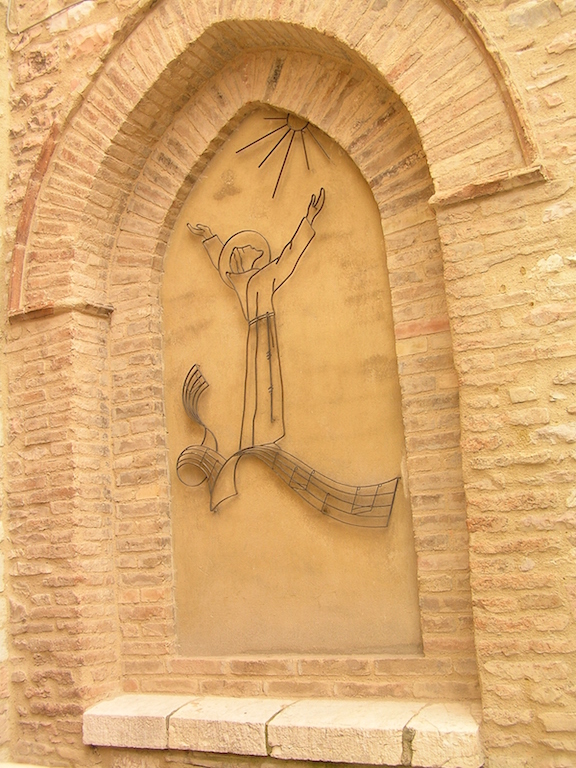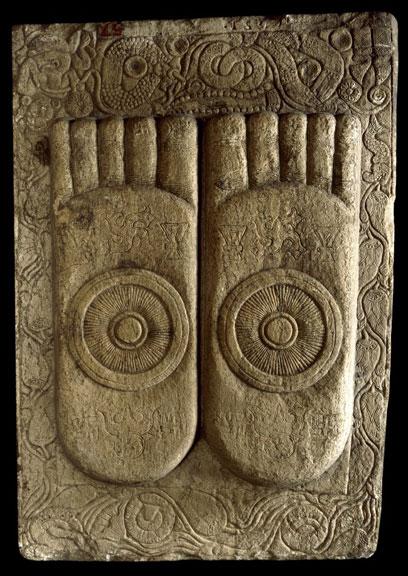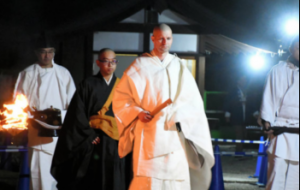Reading another’s journal is like peering through a window into a person’s world. I recently read The Intimate Merton (1999)—the collected journals of Thomas Merton, the American Trappist monk, writer, and mystic. It was quite illuminating. Through it, I’ve been able to understand myself more deeply, appreciate the Catholic faith in new ways, gain insights into my monastic path, and find more evidence of the universality of all spiritual traditions. I feel I’ve made a new friend.
The first thing that struck me was Merton’s honesty. He holds nothing back.
January 4, 1948 – I just read some of the notes I wrote in the journal a year ago and I am wondering what I thought I was talking about. The first thing that impresses me is that practically all I wrote about myself and my trials was stupid because I was trying to express what I thought I ought to think, and not for any especially good reason, rather than what I actually did think. I couldn’t very well know what I meant when I hardly meant it at all. (p. 48)
Reading this, I laughed out loud as a wave of empathy washed over me. I could say the same thing for many episodes of my life, especially when it comes to mindfulness practice. It is so easy to confuse applying the Buddha’s teachings with censoring thoughts and attempting to control emotions. When I first started practicing, I got caught in what I thought I was supposed to think and feel as a meditator. Often, what I thought was mere recognition of thoughts arising turned out to be a little bit of recognition followed by the same old suppression. It took a lot of practice to even know what recognition was. Even now, I still get caught in the “ought”s, but I believe them less.
July 10, 1949 – Keeping a journal has taught me that there is not so much new in the interior life as one sometimes thinks. When you reread your journal you find out that your newest discovery is something you already found out five years ago. Still, it is true that one penetrates deeper and deeper into the same ideas and the same experiences. (p. 70)
This sounds like a reflection on meditation practice! Every time I feel I’ve broken through a layer of misperception, a deeper layer shows up and I see how limited my understanding is of life, of my mind, and certainly of the Buddha’s teachings. Sometimes I feel such disappointment that I haven’t “got it” yet. In Merton’s honesty, humility, and humanity, I can see myself. Through his great enthusiasm and imperfection, I feel inspired to continue to practice even more deeply.
Of course, I also learned a lot about the Catholic faith by reading the journal of a Trappist monk. My father’s side of the family is Catholic, but I rejected Christianity in my teenage years. Most of its depth and beauty was lost on me. The phrase “Surrender to the will of God” was particularly difficult. I always thought of an old man with a long beard sitting on a cloud, pointing his finger and saying, “You MUST do this or to HELL with you!” But for Merton, God is just this:
June 15, 1951 – The only essential is not an idea or an ideal: it is God himself, Who cannot be found by weighing the present against the future or the past but only by sinking into the heart of the present as it is. (p. 84)
Regarding the will of God, in New Seeds of Contemplation (1962) Merton writes:
The requirements of a work to be done can be understood as the will of God. If I am supposed to hoe a garden or make a table, then I will be obeying God if I am true to the task I am performing. To do the work well, with love and respect for the nature of my task and with due attention to its purpose, is to unite myself to God’s will in my work. (p. 19)
If we substitute God’s will for mindfulness, we can see how it fits perfectly. Merton’s will of God is mindfulness practice: learning to dwell peacefully in the present moment with things just as they are whether at work, cooking food, tending the garden, or sitting on a cushion. I was surprised by this, and even more so in reading about surrender:
January 25, 1963 – The situation I am in now has been given me to change me, if I will only surrender completely to reality as it is given me by God and no longer seek in any way to evade it, even by interior reservations. Hitherto my interior reservation has been always “Of course there must be something better, and who knows if that is not for me?” Well, there is something better: but it must come out of an inner transformation of my own self, in Christ.
Merton’s surrender has everything to do with looking within. To truly be happy, or to know God, we have to stop blaming external conditions. We must learn to accept and dwell in the present moment fully. If calling this “God” helps, then why not?
The more I read and immersed myself in Merton’s experience of God, the more resonance I felt with my own experience in the Dharma. From the moment I was able to really sink into Merton’s experience of surrender, I realized that it was an awareness free from a personal identification, like anatman, or “non-self.” In theological terms, Christianity does not teach anatman, which refers to the interdependent nature of all phenomena. But reading Merton, I saw how his surrender brought him to the same experience of being, with no separate, individual self.
Of course, Merton was unusual in that he studied Zen and other Eastern traditions. Nonetheless, these journals woke something up in me. I’ve started to see that I, too, practice surrender, even though I don’t attribute it to a “will of God.” There are times when I am able to let go of mental afflictions, while at other times, the habitual knots of attachment, aversion, and confusion leave me struggling with my mind and with life itself. Intellectually I know that it doesn’t help, but the intellect has very little power over habit energies. If I’m lucky, a sense of frustration and futility sets in. Maybe some tears well up, and I finally stop struggling. I surrender to things as they are.
I embrace the term surrender because it is a stronger word than “acceptance” or “letting go.” Surrender only happens when conditions are right, when the frustration is high enough and something lets go of itself, completely beyond “my” control. The relief is huge. Eventually, insight is born. Christians might call it grace. Although Buddhists don’t think in those terms, it can feel like something comes in from the outside because it is so different from the ego’s effort of struggle.
In the end, the concepts are not so important as the experience, but sometimes the words can lead us toward experience. Inevitably, different words will resonate with different people. Through reading The Intimate Merton, I’ve found a new set of words that help me to understand myself and resonate with the experience of ease. This is truly something to be grateful for.
Thanks, Tom.














